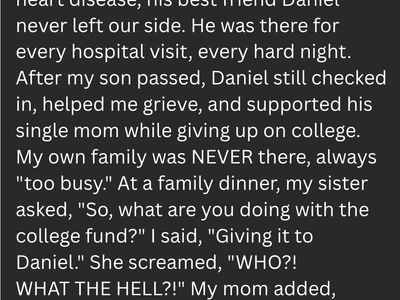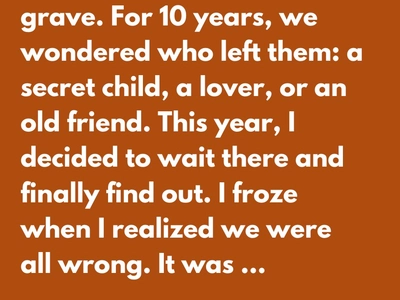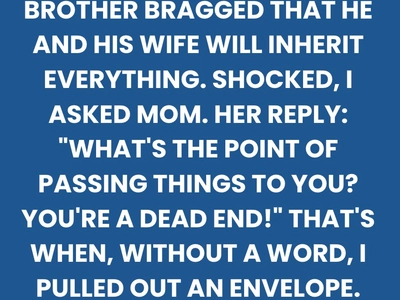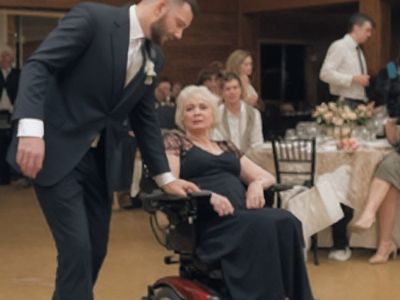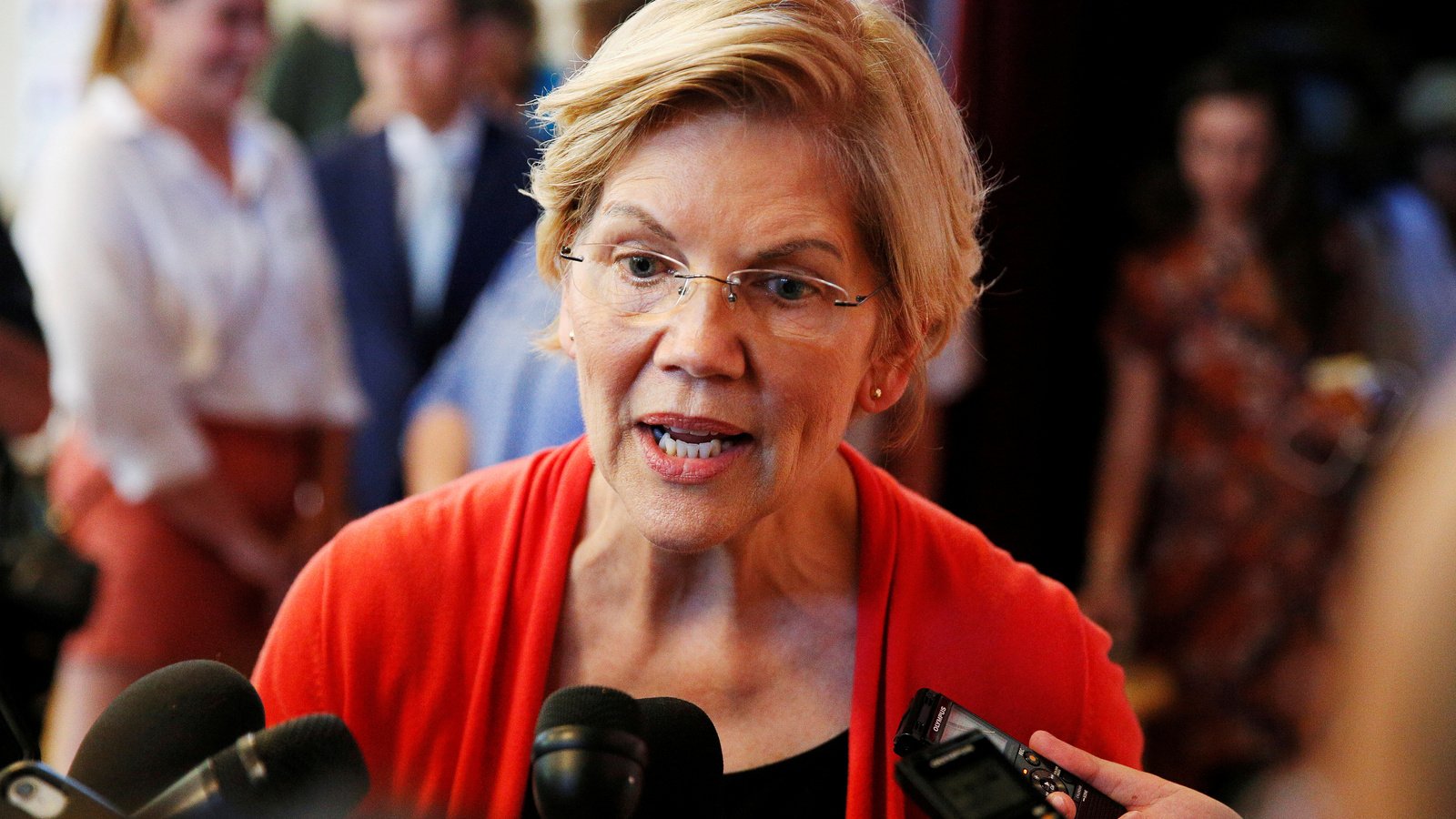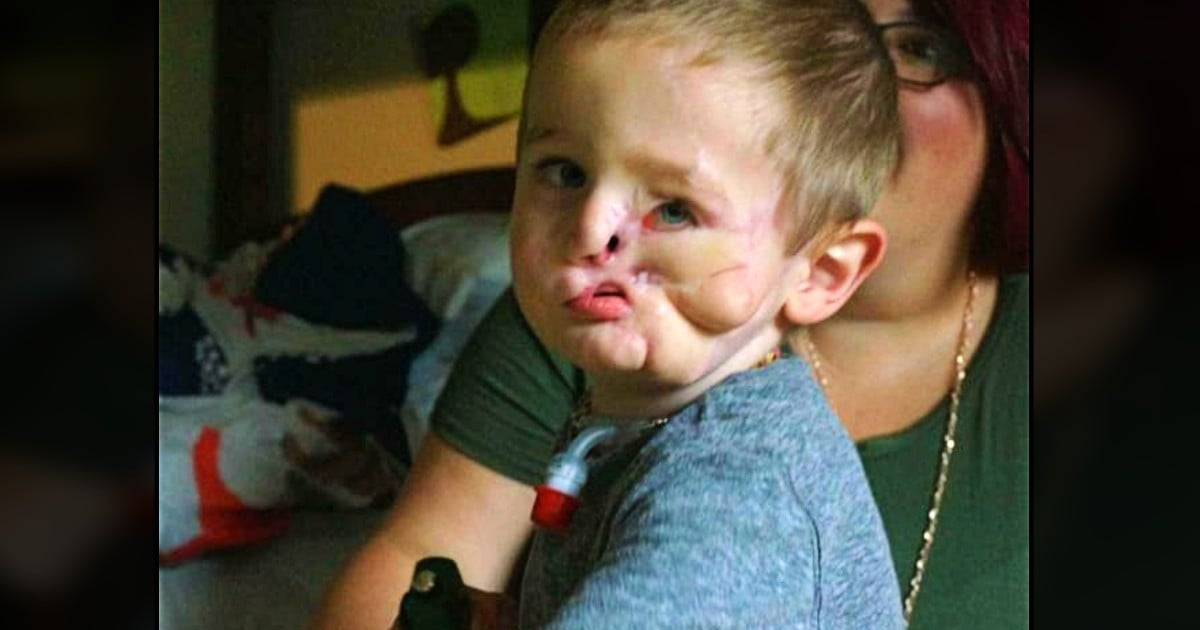They Called Him A Stranger—Until They Saw What He Did With My Son’s Money
When my son Ari was diagnosed with heart disease, it felt like my entire world collapsed. He was only fifteen, still full of dreams, still too young to be tied to hospital beds and endless machines. I stayed by his side, of course, but there was someone else who never left him either—his best friend Daniel. Day after day, night after night, Daniel was there. He sat with us during the long hospital visits, he brought little things to cheer Ari up, and he never once flinched at the sight of tubes or needles or beeping monitors. He was just there, steady and calm, like a lighthouse in a storm I could barely see through.
When Ari passed away, I thought Daniel might finally step back, that grief might send him away to handle his own pain. But he didn’t. He kept showing up. He checked in on me regularly, made sure I ate, made sure I slept, even helped me with small things like groceries or fixing things around the house. He supported his single mom at the same time, working long hours to help her keep the lights on, giving up on his dream of going to college so he could provide for her. And still, he found time for me.
My own family, though—well, that was another story. They barely came around. Too busy, always with some excuse ready. They weren’t there for the hospital visits, not for the nights I thought I would break in half, not even on Ari’s last birthday. But when the subject of money came up, suddenly they had all the time in the world.
I’ll never forget that dinner. My sister asked what I was planning to do with Ari’s college fund. I said I was giving it to Daniel. She nearly exploded. “WHO?! WHAT THE HELL?!” she screamed, as though I’d confessed to something criminal. My mom chimed in, insisting the money should go to my nephew. My uncle scoffed, calling me stupid for giving $25,000 to what he called “a stranger.”
But Daniel wasn’t a stranger. He had been closer to my son than anyone else. So I asked them a simple question: “Tell me the last time you visited Ari in the hospital. Or called him. Or even remembered his birthday.”
The silence that followed was louder than any argument. They all dropped their eyes to their plates, pretending the mashed potatoes suddenly required their full attention. My sister’s jaw was tight, my mom poked at her food, and my uncle muttered something about grief making people irrational. But I wasn’t irrational. I was clear for the first time in months.
Daniel wasn’t blood, but he had been there for every moment my family avoided. He held Ari’s hand when I couldn’t. He sat through the final breath and didn’t run from it. That mattered more than DNA ever could.
The next day, I called Daniel over. As usual, he brought groceries with him, dropping them on my counter like it was his second home. I slid the check across the table. “This was Ari’s college fund,” I told him. “He would’ve wanted you to have it.”
Daniel shook his head immediately. “Ms. Nari, I can’t take this.”
“You can,” I told him. “And you should. He believed in you. So do I.”
He stared at the check, wearing one of Ari’s old hoodies, the blue one with the bleach stain near the pocket. He always wore it when he missed him. His voice was quiet when he finally said, “I was gonna go to tech school. But my mom’s car broke down, and I had to take that security job downtown instead.”
“Now you don’t,” I said. “Now you can go build the life Ari wanted for you.”
Daniel didn’t cry. He just tucked the check into his jacket, nodded once, and gave me the kind of hug that only someone carrying the same broken pieces you are can give.
Weeks passed. Then months. He still texted me all the time—sometimes with funny memes, sometimes just a simple “Thinking of him today.” One day, a picture came through: Daniel sitting in a computer lab, wires everywhere, grinning like a kid. The caption read: “First class down. Five more to go.”
Meanwhile, my family still simmered in bitterness. My nephew, the one they claimed deserved the money “more,” got suspended from school for fighting. My sister posted angry rants on Facebook about “outsiders” getting handouts instead of family. I didn’t engage. I didn’t need to.
Six months into his program, I got a letter. An actual letter in the mail. It was from his instructor. She wrote about how Daniel was one of the most dedicated, kind, and focused students she’d ever seen. She mentioned how he talked about Ari, about wanting to make him proud. And she described his final project: a heart rate monitor coded with Ari’s name. When it detected an irregularity, it flashed the words “Ari Would Stay.”
I read that line over and over.
The next day, I drove to campus and found Daniel in the lab, hunched over a circuit board with a pencil behind his ear. He looked older, more grounded. I handed him the letter without saying anything. He read it, blinked a few times, and then said, “Ari would’ve laughed at the name. He hated sentimental stuff.” We both laughed, and for the first time in a long time, it didn’t feel forced.
Daniel graduated at the top of his class a year later. He got offered two internships—one close by, one in another city. He chose the local one. “I want to stay close to you,” he told me. “And your cooking.”
Then came the real turning point. A biotech startup offered him a job, not just in coding but in developing wearable health tech that could actually help monitor patients remotely. When they asked him what inspired him, he told them about Ari. He got the job. Full-time, with benefits, with a salary that made me smile in disbelief.
That fall, he and I visited Ari’s grave together. Daniel placed a small device on the headstone. “It pings me when I’m near,” he said softly. “Just a little buzz. Reminds me where I started.”
Later that evening, my mom invited my sister over for dinner, trying to mend fences. The tension was heavy, but Daniel handled it with grace. He complimented my mom’s cooking, asked my uncle about his car, even made small talk with my nephew. My sister stayed quiet until dessert. Then she leaned forward and asked, “So. What did you really do with the money?”
Daniel smiled, calm as ever. “I used it to build the life your nephew thinks he’s entitled to.”
I nearly choked on my tea. My mom gasped. My nephew’s eyes went wide. Daniel simply stood up, thanked me for dinner, and promised to call me tomorrow. And he did.
A few months later, Daniel asked me to come with him to a community event. It was a tech fair for high schoolers. When I got there, I saw a booth with a banner that read: “Ari’s Table – Tech For Hearts.” Daniel had started a nonprofit with his first bonus. He refurbished laptops for kids from single-parent homes, launched mentorship programs, even partnered with a clinic to provide basic heart monitoring kits. He hadn’t told me. He just did it.
People began asking me if I was his mom. At first, I explained the truth: “No, I’m just a family friend.” But over time, the answer shifted. “Yes,” I began to say. Because family isn’t always blood. Sometimes, it’s love. Sometimes, it’s loyalty. Sometimes, it’s showing up when things are unbearable.
Two years after starting the nonprofit, Daniel was invited to speak at a national conference. It was his first time on a plane. He sent me a picture in a suit with the caption: “Made it. Thanks to you.” He came back with a partnership deal, funding, and the chance to expand.
Now Daniel employs five people. He mentors kids who remind me of Ari—kids who just need someone to believe in them. And at his next fundraiser, my sister came. She dropped a check into the donation box and told him, “I was wrong.”
Later that night, Daniel leaned over to me and whispered, “That felt better than any job offer.”
I believe in karma. I gave time, money, and trust. Daniel gave it back tenfold—in kindness, in impact, in legacy. If I’d listened to my family, the money would’ve gone to a boy who barely said thank you. Instead, it’s building a future that carries Ari’s name into every classroom, every laptop, every heart monitor Daniel designs.
My son’s future was cut short, but Daniel built one in his honor. And that love, that loyalty, that determination—it keeps Ari’s spirit alive in ways I never imagined.
Because family isn’t who shares your blood. It’s who shares your burden. It’s who stays when everything falls apart. And for me, that will always be Daniel.
